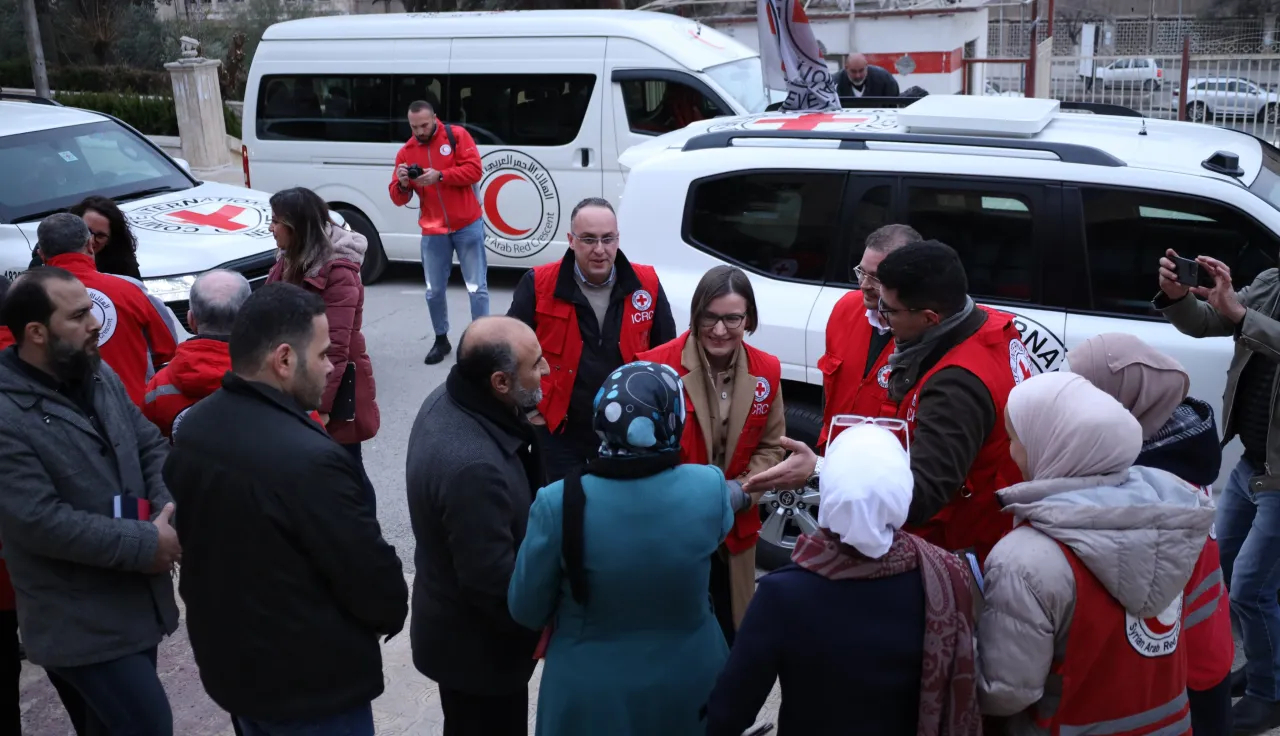
The Syrian Traditional Government (STG) is grappling with significant economic challenges as US sanctions continue to hinder the import of critical resources such as fuel and wheat, despite international offers of assistance. Syrian Trade Minister Maher Khalil al-Hassan has warned of potential catastrophe if sanctions are not eased, citing the country’s precarious reserves of essential supplies.
Blocking Vital Resources
In an interview with Reuters, al-Hassan explained that sanctions, imposed during the era of the former Assad regime, remain a substantial obstacle to Syria’s recovery. “We have secured enough wheat and fuel for only a few months,” he said, adding that the restrictions prevent Syria from capitalizing on offers of support from Gulf nations eager to provide aid such as Qatar and the Kingdom of Saudi Arabia.
The ongoing sanctions have impacted not only the economy but also critical infrastructure, delaying the rehabilitation of essential services such as electricity and water systems. The International Committee of the Red Cross (ICRC) highlighted the urgency of the situation, pledging to expand its aid to Syria beyond its initial $100 million program to address gaps in the health, water, and energy sectors.
US Waivers Aim to Facilitate Aid
Amid these challenges, the United States has announced measures to temporarily ease some sanctions. A new general license, known as GL 24, issued by the US Treasury Department’s Office of Foreign Assets Control (OFAC), authorizes specific transactions with Syria’s governing institutions. The license permits transactions that support essential public services, including energy-related activities and personal remittance transfers, through July 7, 2025. However, these waivers maintain restrictions on Syrian military and intelligence services.
The license also allows foreign governments and companies to donate or sell fuel, including petroleum products and electricity, to Syria without facing sanctions. This measure aims to facilitate humanitarian relief and accelerate reconstruction efforts while ensuring compliance with broader US sanctions laws.
Challenges to Reconstruction
Despite these waivers, significant challenges remain. The ICRC noted that sanctions continue to restrict the import of vital spare parts needed to rehabilitate Syria’s electricity infrastructure. “Certain spare parts should be allowed in because that is undermining the rehabilitation work at the moment,” said ICRC President Mirjana Spoljaric. These restrictions, she emphasized, add a political dimension to humanitarian efforts.
The funding gap for Syria’s recovery is another critical hurdle. According to the UN Office for the Coordination of Humanitarian Affairs (OCHA), Syria requires $4.07 billion in aid this year, but only 33.1% of that target has been raised. Donor countries, including those in the Gulf, have expressed willingness to contribute more, yet the sanctions regime complicates their efforts.
Balancing Relief & Accountability
The US government’s actions reflect a balancing act between providing humanitarian relief and maintaining pressure to ensure accountability for past atrocities. The GL 24 license supports activities such as disarmament, rebuilding public infrastructure, and fostering democratic processes while continuing to restrict dealings with entities associated with the former regime’s military and intelligence apparatus.
Experts stress the importance of a strategic approach to sanctions relief. While easing restrictions on critical sectors like energy and public services, Washington remains focused on preventing any resources from bolstering remnants of the former regime or its affiliates. This careful calibration underscores the complexity of rebuilding Syria amid longstanding geopolitical tensions.
A Path Toward Stability
As Syria emerges from over a decade of conflict, the need for international cooperation is more urgent than ever. The recent US waivers offer a lifeline for critical humanitarian and reconstruction efforts but fall short of addressing the full scope of Syria’s challenges. With $400 billion estimated for reconstruction and a population struggling under the weight of poverty, a coordinated global effort is essential to ensure the country’s recovery and stability. For the Syrian people, the road ahead remains arduous, but the loosening of some sanctions may provide a glimmer of hope as they work to rebuild their lives and their nation.








